PUT THE BRAKES ON HIGH TRANSPORTATION COSTS WITH JUMBO ROLLS
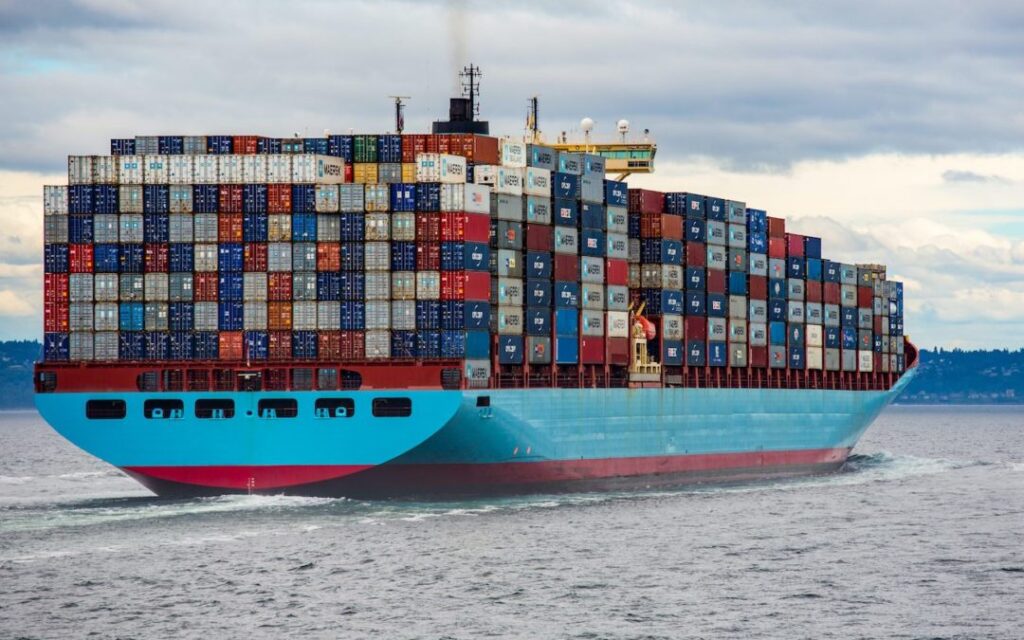
Most recently, shipping and freight costs have quadrupled in some cases. The international trade in films threatens to become unprofitable. Supply55 and Nepata know a way out: jumbo rolls
Summary
Many foils and similar products are produced in Asia, but mainly sold in Europe, the USA or Oceania. Film dealers can save up to 70% on sea freight costs if they purchase so-called jumbo rolls from the manufacturers. Only in the destination country are these converted to commercially available rolls of 25, 50 or 100 meters. In this post, I will introduce you to this strategy. And you will learn how this can be realized with NEPATA solutions with manageable investments compared to an industrial slitter/rewinder.
TRADE IN FOILS FOR ADVERTISING TECHNOLOGY AND TEXTILE FINISHING – A GLOBAL BUSINESS
Supply chains were and are disrupted because of the Covid pandemic. Energy prices have been rising for months, most recently due to sanctions against Russia. At the same time, the demand for products and raw materials is growing due to the economy picking up again in many places. In short: International freight capacities are scarce – and expensive. Shipping and freight costs have quadrupled in some cases since last year.
International trade in films and similar products is also affected. Flock foils, flex foils, self-adhesive foils, protective foils, etc. – these and similar media are often produced in Asia. However, the buyers are mainly in Europe or the USA. In addition, there are trade relationships between manufacturers and distributors from the USA and Europe or remote countries such as Australia and New Zealand.
THIS ALLOWS WHOLESALERS AND DISTRIBUTORS TO OPTIMIZE FREIGHT COSTS
Foil rolls sometimes cover long distances. The problem in film logistics: The freight costs drive up the product prices extremely. Business models threaten to become unprofitable. Film dealers, above all wholesalers and distributors, must therefore try to reduce the freight costs for the goods. A promising strategy is the purchase of so-called jumbo rolls from the manufacturers. These have a running length of more than 1,000 meters and are only rewound on site in the destination country into standard rolls of 25 m, 50 m or 100 m. Above all, this saves dimensional weight in sea freight – a decisive factor for freight costs.
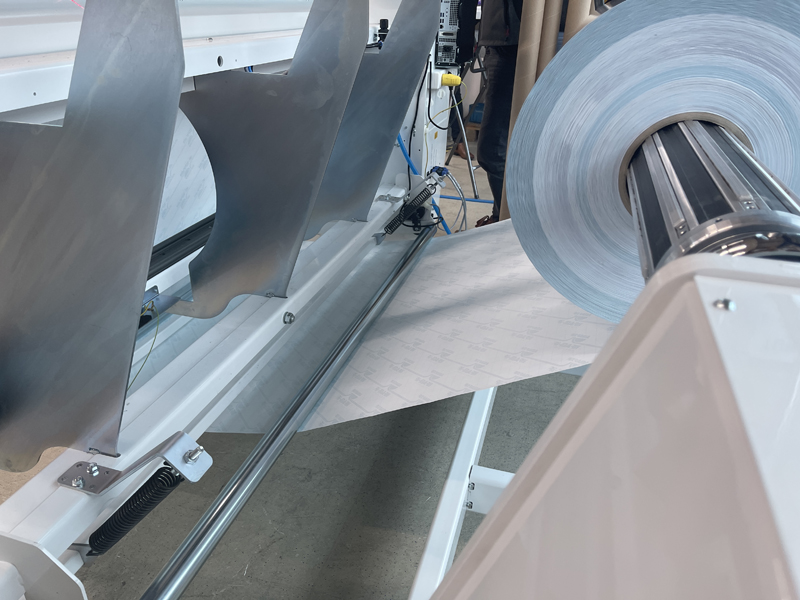
A calculation example: A jumbo roll with 1,500 running meters of film has a diameter of around 70 cm and is 1.22 m high – a volume of only around 0.6 cubic meters. If you send the same goods as 50 meter rolls, that corresponds to 30 rolls in individual boxes. The space required for this: 1.5 Euro pallets, or almost 1.8 cubic meters – three times as much as the jumbo roll! Our calculations have shown that, depending on the material, 50% to 70% of the costs for sea freight can be saved with jumbo rolls.
Interim conclusion: With jumbo rolls, 50% to 70% of the costs can be saved in sea freight.
CONVERT JUMBO ROLLS FOR RESALE
Of course, purchasing the large rolls for adhesive foils & Co. is not enough. The film retailer still has to rewind and cut the jumbo rolls into commercially available short rolls. Now, for example, the Nepata rewinders can, due to their design, unwind rolls with a maximum diameter of 40 cm. That means: First of all, an additional investment is necessary in order to be able to drive the “jumbo strategy”. But this investment is surprisingly moderate and promises a quick payback.
At Nepata we have developed a so-called Jumbo Companion: an optional unwinding that is operated directly at a conversion center or a rewinding machine. With the jumbo unwinder, rolls with a diameter of up to 100 cm and a weight of 500 kg can be unwound and wound and cross-cut precisely as usual with the NEPATA machine (and software).
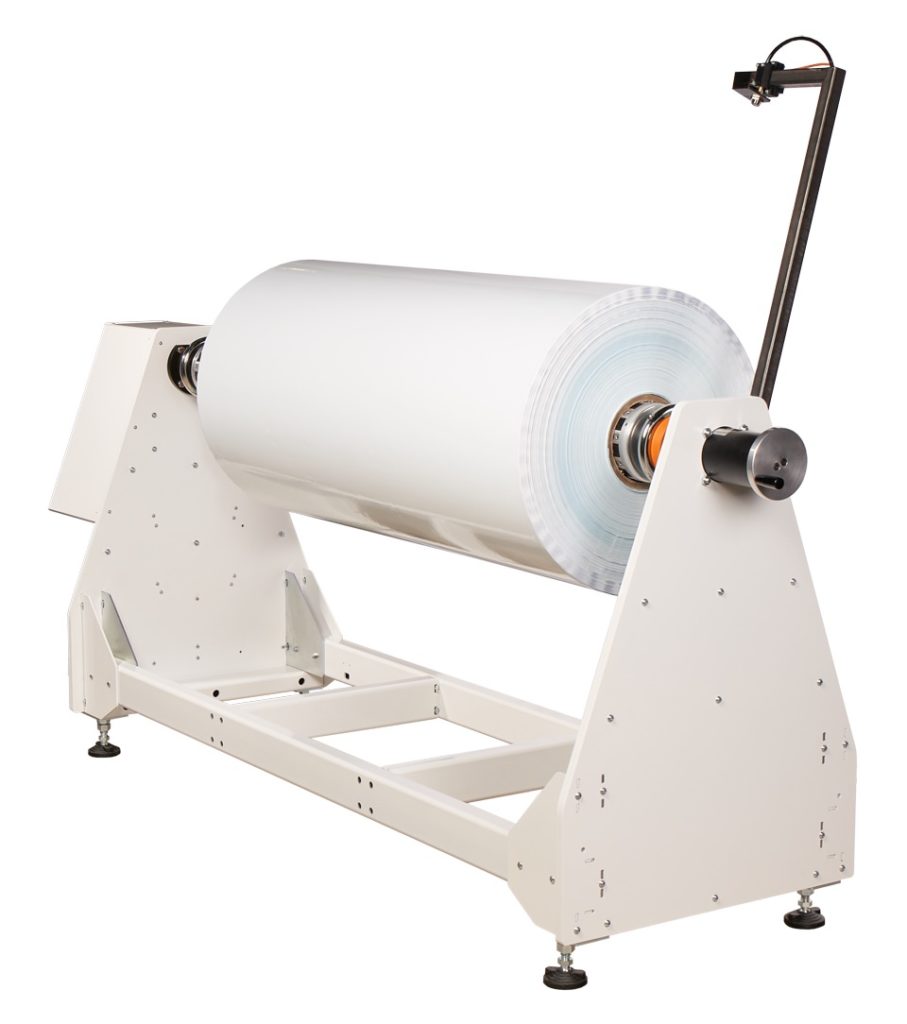
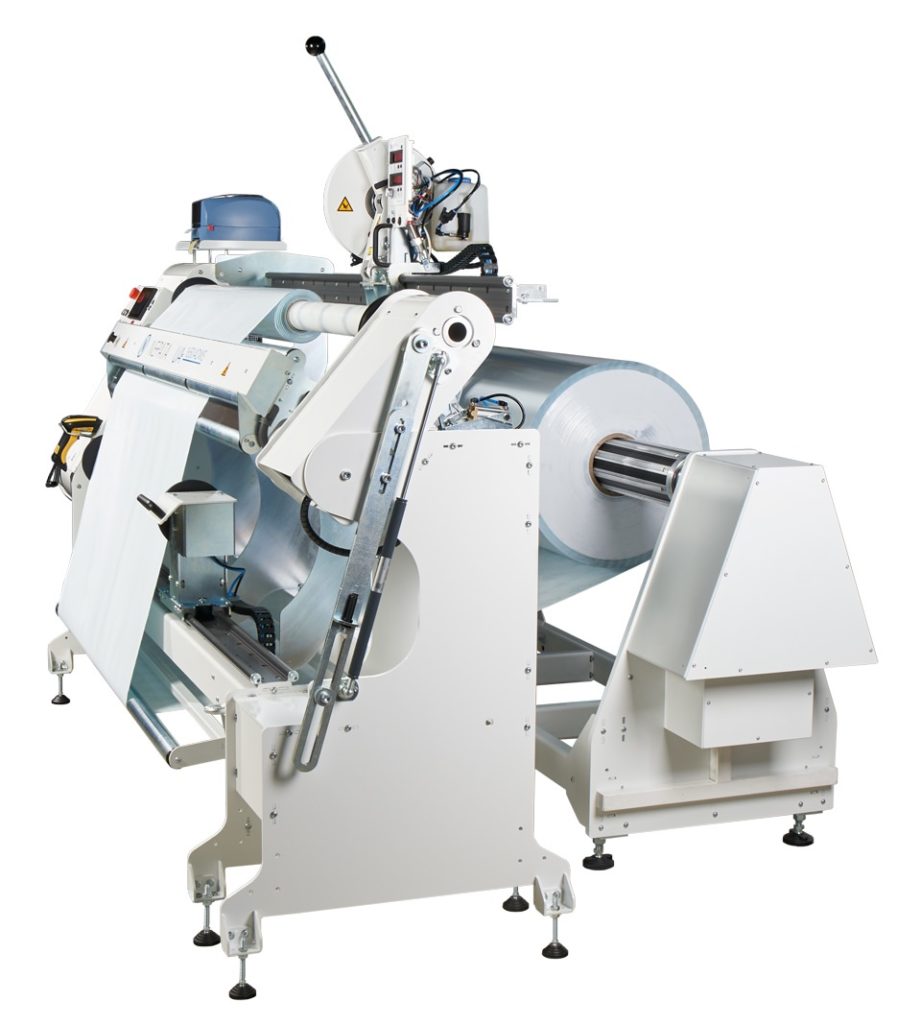
CONVERTING SOLUTION WITH MODERATE INVESTMENTS
Of course, the use of industrial converting solutions would also be conceivable, large slitters/rewinders, as known from the packaging or paper industry. We see two major advantages in our combined solution of rewinding machine and optional jumbo unwinder:
- Use machine capacity flexibly
As a film retailer, you can use part of the machine capacity for series production by adding the Jumbo Companion: you convert the jumbo rolls into standard rolls of 25, 50 or 100 meters. In between, the machine can be used again with the internal processing as the usual flexible, precise and ergonomic rewinder/cutter for single rolls and special orders without any conversion. The JC models can process a wide range of film materials, paper and nonwovens.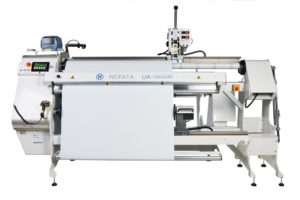
- Manageable investment
costs Let’s get back to the topic of costs. After all, the aim of the “Jumbo Strategy” is to achieve cost advantages and thus remain competitive. It would make little sense to invest in a completely oversized machine. In the case of industrial converting machines, slitters, etc., we are talking about amounts in the range of hundreds of thousands to over a million euros. Our solution with the jumbo companion can also convert jumbo rolls into short rolls – and that with manageable investment costs in the five-digit euro range. An amount that quickly paid for itself, especially if freight prices continued to rise.
A NEPATA rewinding machine supplemented with a jumbo unwinder has the same result as an industrial converter that is 15 times more expensive.
CONCLUSION: FOIL TRADE STILL PROFITABLE WITH THE “JUMBO STRATEGY”
With a converting solution from Nepata, which is supplemented by a jumbo unwinder, film retailers can meet the challenges of the current freight cost crisis – and gain decisive competitive advantages in order to be able to continue to offer film products profitably.
To learn more about NEPATA converting equipment or automation of your converting operation contact Supply55, Inc. at 734-668-0755 or visit www.convertingcenters.com.


